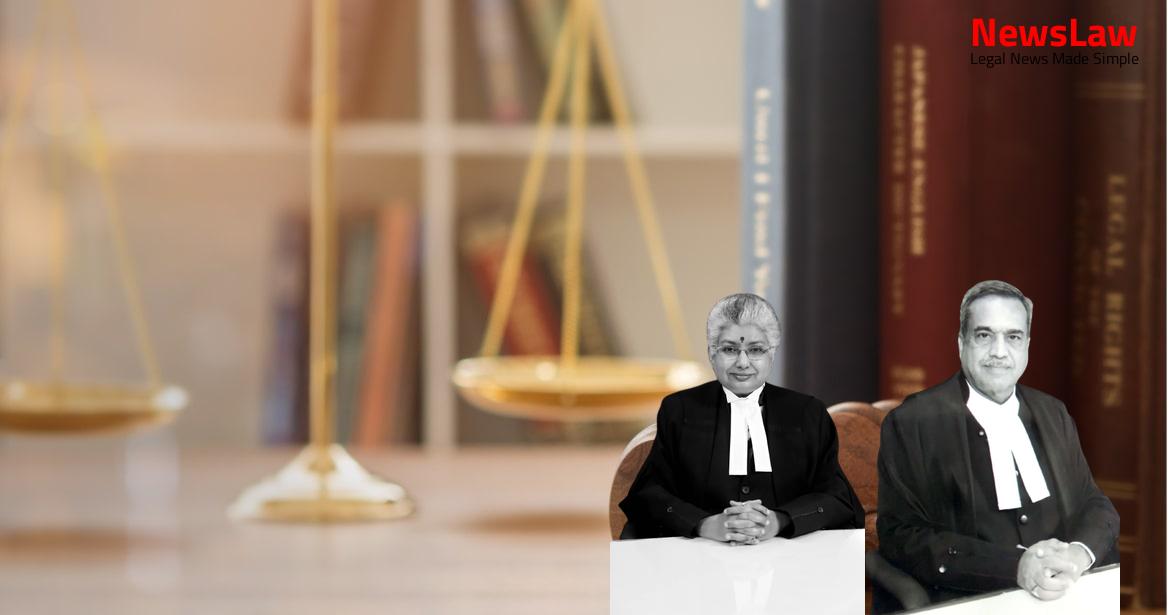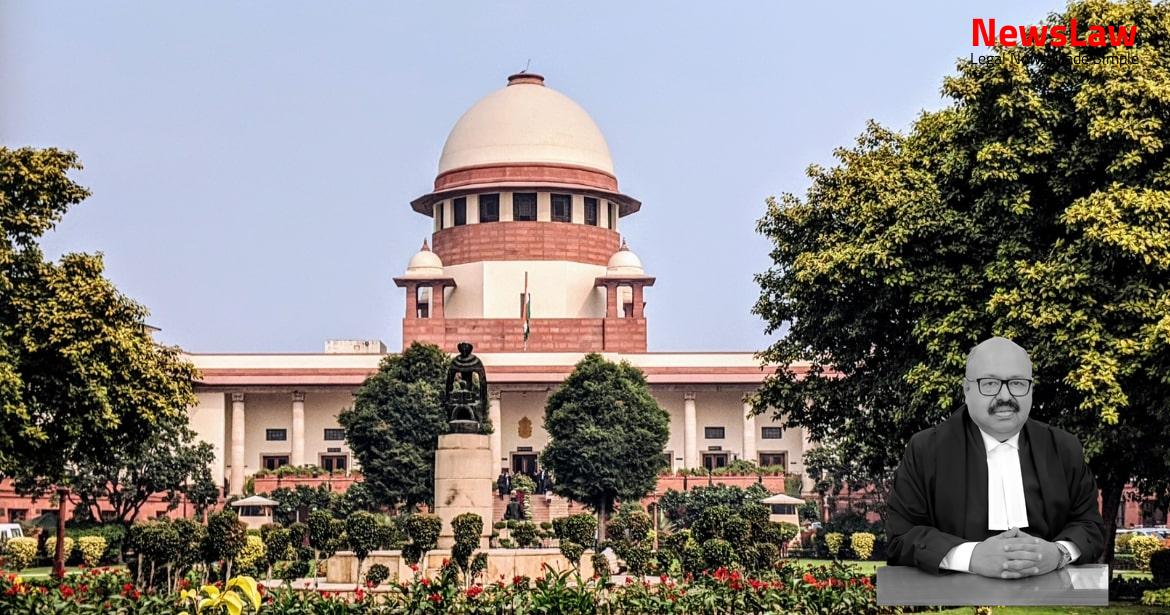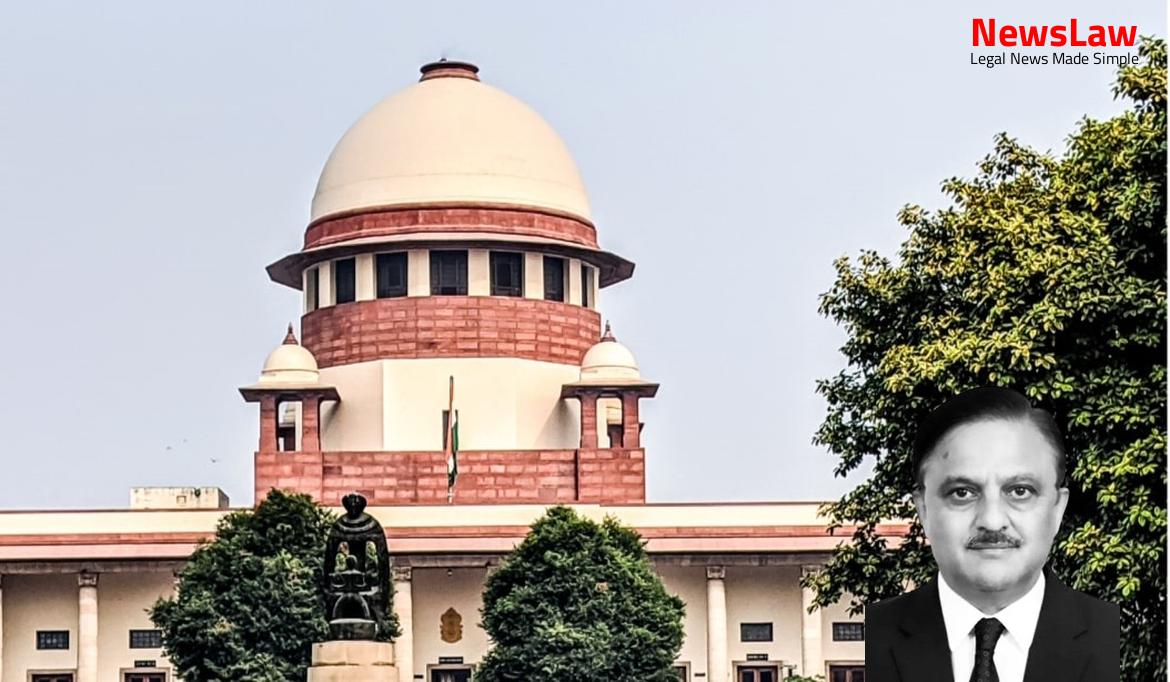The crux of the legal case lies in the classification of offenses under the Copyright Act as either cognizable or non-cognizable. The Court delves into the intricacies of the law to determine the correct categorization, impacting the criminal proceedings significantly. The judgment and analysis provided shed light on the interpretation of statutory provisions in criminal matters, making it a crucial case for legal practitioners and enthusiasts alike.
Facts
- Appellant filed an application under Section 156(3) Cr.P.C. seeking FIR registration against respondent No.2 for specified offences.
- The learned CMM directed the concerned SHO to register the FIR as per the application.
- The High Court allowed a writ petition and quashed the FIR against the respondents for certain offences under the Copyright Act.
- Subsequently, FIR No.431 of 2018 got registered with PS Bawana.
- Respondent no.2 filed a petition before the High Court to quash the criminal proceedings.
- The petition was based on the argument that the offence under Section 63 of the Copyright Act is non-cognizable and non-bailable.
Also Read: Ruling on Circumstantial Evidence in Murder Case
Issue
- Whether the offense under Section 63 of the Copyright Act is cognizable or non-cognizable is the main issue before the Court.
- The Trial Court considered it a cognizable offense, while the High Court deemed it non-cognizable.
- The key question is the classification of the offense under Section 63 as either cognizable or non-cognizable.
Also Read: Challenging Legal Presumptions in Negotiable Instrument Cases
Arguments
- Appellant’s counsel argues that the offence under Section 63 of the Copyright Act warrants a minimum imprisonment of six months but can extend to three years.
- The High Court erroneously considered the offence as non-cognizable and outside the scope of Part II of the Cr.P.C.
- Counsel contends that the High Court misinterpreted the decision in Rakesh Kumar Paul vs State of Assam and failed to consider the maximum term of imprisonment specified for the offence.
- Referring to the case of Intelligence Officer, Narcotics Control Bureau vs Sambhu Sonkar, it is highlighted that the prescribed maximum imprisonment cannot be disregarded for categorizing the offence.
- Non-cognizability applies only to offences punishable with less than three years of imprisonment or fine only.
- The High Court’s decision to quash the FIR on the basis of the offence being non-cognizable is strongly opposed by the appellant’s counsel.
- The High Court did not commit any error in holding that the offence under Section 63 of the Copyright Act is a non-cognizable offence.
- In the alternative, if the court holds that the offence under Section 63 of the Copyright Act is cognizable, then the expression ‘not less than 10 years’ has been interpreted to mean punishment should be 10 years.
- In such a case, Section 167(2)(a)(i) would apply.
Also Read: Legal Analysis of Admission Irregularities in Educational Institutions
Analysis
- Offence under Section 63 of the Copyright Act pertains to infringement of copyright or other rights conferred by the Act.
- The punishment for such offence includes imprisonment for a term not less than six months but up to three years, along with a fine ranging from fifty thousand to two lakh rupees.
- Exception is provided for infringement not done for gain in trade or business, where lesser sentences can be imposed for valid reasons.
- Construction of a building or structure infringing or that would infringe copyright is not considered an offence under this section.
- The maximum punishment that can be imposed is three years for offences punishable for less than three years.
- Only offences punishable for less than three years or with fine only are non-cognizable.
- The decision in the case of Rakesh Kumar Paul is not applicable to the current case.
- The language of the provision in Part II of the First Schedule is unambiguous.
- Offences punishable with imprisonment from three to seven years are cognizable.
- The High Court erred in holding that the offence under Section 63 of the Copyright Act is non-cognizable.
- The High Court made a grave error in quashing the criminal proceedings and FIR related to Section 63 of the Copyright Act.
- The offence under Section 63 of the Copyright Act is deemed as a cognizable and non-bailable offense.
- Due to the nature of the offense, the judgment of the High Court quashing the criminal proceedings/FIR under Section 63 is incorrect and should be overturned.
Decision
- The matter may be remanded to the High Court to decide the writ petition on merits on other grounds.
- No other grounds were pressed into service in this case.
- No order as to costs in the circumstances of the case.
- The impugned judgment and order of the High Court is quashed and set aside.
- Criminal proceedings against respondent no.2 under Sections 63 & 64 of the Copyright Act shall proceed as a cognizable and non-bailable offence.
- The present appeal is allowed to the extent mentioned.
Case Title: M/S KNIT PRO INTERNATIONAL Vs. THE STATE OF NCT OF DELHI (2022 INSC 621)
Case Number: Crl.A. No.-000807-000807 / 2022



